Whats happening at the Eleventh International Conference of Autoethnography
This year our conference theme is Murmuration
The prompt behind our use of this metaphor comes from Elyse Pineau’s closing reflections at the 2023 Annual Conference where Elyse was provoked to think about “bodies” “bodies becoming” “what is a body to do?” and how bodies shape the landscape and the journey of other bodies.
Conference schedule can be found here ICAE 2024 Programme
We have four pre conference workshops ahead of the conference, to sign up or find out more information please check https://boomerang-project.org.uk/workshops-2/ or contact our administrator jessie@boomerang-project.org.uk
Below we share a flavour of whats happening at ICAE2024
KEYNOTES
Autoethnography in the “Thin Places”
Chris Poulos
Autoethnography in the “Thin Places”
In Celtic lore, the world has “thin places” (Gome, 1996) where one might experience a disruption in the ordinary temporal-spatial plane we inhabit. These thin places may provide an entry point, a sort of portal to another realm, a realm of spirit. Going to these places can release us from the everyday world and open us up to a new world of possibility. Sometimes, thin places show up unexpectedly.
Thinking and writing about thin places and liminality in general has led me to wonder about two disparate phenomena in the physical world—so disparate that they may seem entirely unrelated—yet, here they are, popping into my consciousness together, almost simultaneously. One is the echo that I hear when I call out across a distance—the thin trace of my voice coming back to me in little waves across space and time. The other is the murmuration, that oddly hypnotic swirling, twisting, and turning of a flock of starlings, making waves across the sky. Both call to me, both are asking for attention; both seem to come in waves. In this keynote address, I will speak into and through the echoes and murmurations of memory, working my way across the thin places between memory and forgetting, between dreaming and waking, between hearing the voice of the Muse and writing, between pausing and acting, between the sacred and the profane (Eliade, 1957). Come with me as we wander across time, picking up the echoes, the traces, the murmurations of memory…into the alchemy of autoethnography…
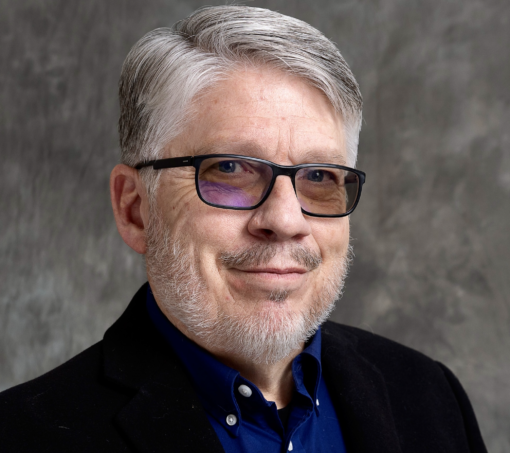

Sociable Solitude: exploring some alternative ways of being and moving with others
Gayle Letherby
bell hooks suggests that there are ‘not very many public discussions of love [beyond romantic/erotic love] in culture’ (2001: pxvii). Like her I am interested in more than romantic or erotic love; that is also non-sexual love between individuals and in ‘living by a love ethic’ (2001: p87), with love embedded in a commitment to social justice. In reflecting on the relevance of all of this to my own life I not only consider the significance of social, emotional and network (mobility) capital but also attempt to unpick (at least a little) the complex personal and political relationship between life chances and choices. My intention then, with the conference theme of murmuration in mind, is, though an autoethnographic lens, to outline and explore some alternative ways of being and moving with others.

Plenary Performance
“Letters to Mama Written in the Murmurations of Life and Death”
Bryant Keith Alexander
This performance is based on a broader book project with Mary E. Weems entitled, Letters to Mama: Epistolary Autoethnographies Confronting Loss, Memory, and Resolution in which they use letter writing as a form of doing autoethnography; addressing relational histories and dynamics directed to their deceased mothers. This project recognizes the importance of examining the inner states of knowing the self that informs all interpersonal and intercultural aspects of knowing ourselves in the world, amplifying the reflexive and transformational potential of written and performed autoethnography. In Alexander’s solo performance he—traverse murmurations of movements between himself as a queer son and his mother; between their life together, her death, and his living: Approximately 35-45 minutes
We are delighted to welcome Georgia Thompson, Editor of Research Methods, Psychology, Comparative Psychology with Routledge | Taylor & Francis Group will be joining us for the duration of the conference and setting up a stand in the conference room. Please contact Georgia directly if you would like to set up a meeting at georgia.thompson@tandf.co.uk


Panel
What comes before voice?
Teppei Tsuchimoto, Nozomi Fujisaka, Aya Hayasaki, Mihoko Motooka, Chihiro Suzuki, Mao Yamaguchi
Inspired by the theme of the conference, ‘murmuration’, we begin to consider the process of voice formation. The murmur, the sound, noise, or the bodily sensation itself has no form – yet we can generally recognise the presence of its dynamics, which comes before the voice. What can we name it? How can we express it? How can we live better with it? Throughout the panel, we juxtapose and constellate our fragments of experience to access such a complex field.

Panel
“Common threads in learning, and the joy of sharing through community“
Clive Palmer with Glenn Smith, Danny Lee and Craig Lawlor UCLAN
A distinctive feature of the supervision I provide is born from sharing distinctive research experiences through a community of learners around me, who have a great deal in common, despite first appearances. It is not only the fascination and advances with individual topics that are showcased at the events and ‘outlets’ I create, but also personalities, leading to friendships forged and struggles and triumphs shared. This is a level of care I cannot provide on my own. As a doctoral supervisor I have come to rely upon the very group I have created. Common threads I draw upon to facilitate sharing and learning, are through academic writing, data-performance, and creative or arts-based interpretation. Drawing upon my sporting background, I recognise the learner’s hesitancy as being similar to that of the sports person with nerves to ‘commit’, however, good preparation and personal confidence are key ingredients to success. Some valuable members of this community are here to share their work and their joy of learning – which we hope you enjoy!



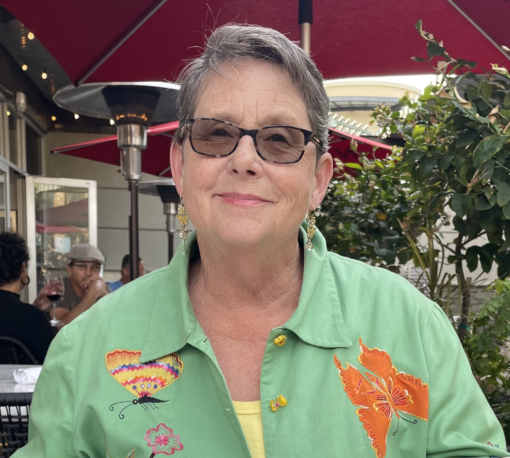
Panel
An articulate Witness: What does it take to “offer” feedback
Elyse Pineau, Carolyn Ellis, Pat Sikes and Kitrina Douglas
In these essays, we reflect on the responsibilities of bearing witness and responding.
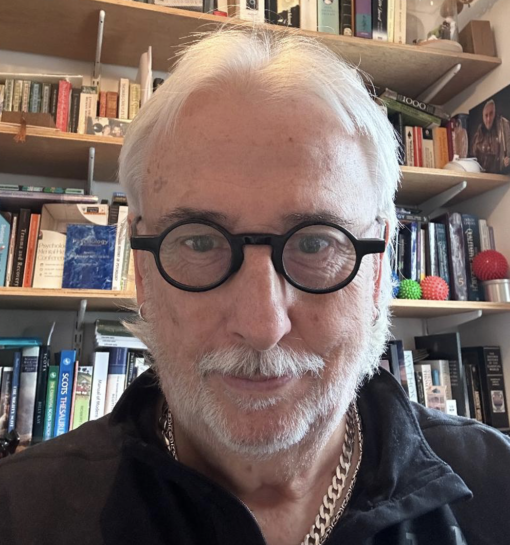
Panel
Writing Philosophical Autoethnography (2023, Routledge)
Alec Grant, Mark Freeman, Christopher Poulos, Julie-Anne Scott-Pollock, Georgina Tuari Stewart, Art Bochner, Shelley Rawlins, Menah Prat
Writing Philosophical Autoethnography is the first volume of narrative autoethnographic work in which invited contributing authors were charged with exploring their issues, concerns, and topics about human society, culture, and the material world through an explicitly philosophical lens.
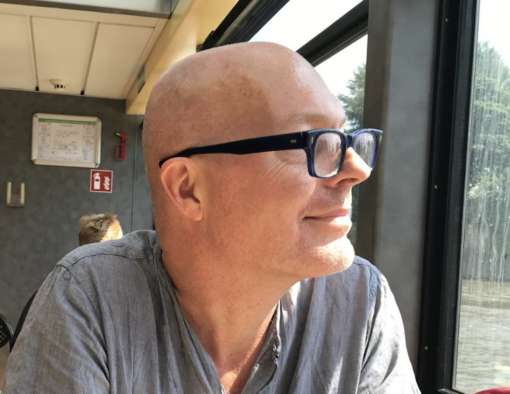
“Poetry please”
with Chris Saunders
A murmuration of dancers
Landa Love, University of Plymouth
Dance set -> Dansette
Mel Perry and Tim Buescher, Nottingham Trent University
“Nyenrode” Freek Sanders
“Three ruck sacks” Joshua Eibenschutz
Performance Autoethnography
“Blodeuwedd: a RE-Perspective” Bethan Habron-James, Bangor University & Royal Northern College of Music, Manchester
“‘Cover Me Now’: Murmuration on Mental Health Research” David Carless, University of the West of Scotland
“A song for Norman” Kitrina Douglas, University of West London


Bethan Habron-James

Presentations & Papers
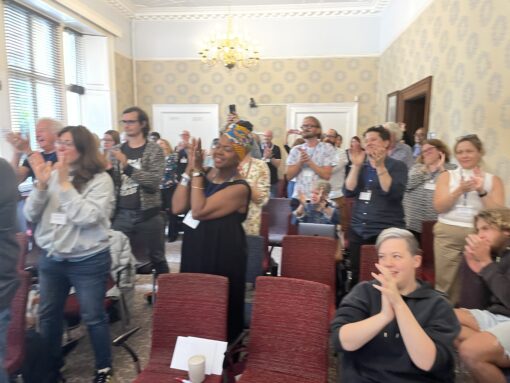
“Enlli Murmuration” Mel Perry
“Timing is Everything! Reflections on Kairos and Coevality within my Practice as an Educator and Social Being”, Paul Stronge, Peninsular Medical School, University of Plymouth
“Questioning my right to write as I roam” Hazel R Wright, Anglia Ruskin University
“Knotworking’ and the role of trust in interdisciplinary groups”,Tracey Collett, University of Plymouth
“Generating Swoopings and Swirlings at Sunset and Sunrise”, Mary Catherine Garland, University of Plymouth
“The Space Between: Reflections on white, working-class males and the neoliberalisation of identities – An autoethnographic study”, Dane Morace-Court, University of Chichester
“Soles of Black Men: A Moving Conversation About Black Men, Black Joy, and Rest”, Chris Omni & Vince Omni, Florida State University

Ana Baptista is Principal Teaching Fellow and Strategic Lead for Medical Education Transformation at the Faculty of Medicine at Imperial College London (UK). Ana leads on the new MBBS curriculum evaluation, being particularly interested in examining its impact on the development of students’ professional identity. Ana is interested in less ‘conventional’ research methodologies in Higher Education research that illuminate students’ and staff diverse and enriching experiences. Autoethnography is one of those research methods as it provides a great potential to access powerful stories.
Anitha Uthayasooriyan is a fourth year medical student at Imperial College London (UK). Currently, she is studying an intercalated iBSc in Remote Medicine which looks at healthcare in the extreme or austere environments. Anitha is particularly interested in medical student participation within patient care settings and the possible barriers that students face which hinders their engagement. For the first time, she is reflecting on her account of entering clinical spaces and sharing how she navigates the chaos of being the newcomer in the surgical theatre.

Doing Doctorates Differently Carol Azumah Dennis, Kathy Chandler and Donata Puntil
In this presentation we offer a rhizomatic analysis of the relationality that defines PGR journeys through the professional doctorate. Drawing on data inspired by collective autoethnography, we map the nomadic entanglements of Prof Doc PGRs as they negotiate their supervisory teams, other PGRs, and the institutions within which they are embedded.




Kari Silvola is a doctoral researcher in creative writing, author, and university lecturer at the University of Jyväskylä in Finland. He is completing his doctoral dissertation titled A Darkroom of my Own: Confessions of a Male Model and is also writing a non-fiction book titled Kaarina–Los Angeles: In the Bootsteps of Tom of Finland. He examines representations of masculinity as well as internalized self-discrimination and passing phenomena.
Mary Catherine Garland is an Alumni Research Fellow with the University of Plymouth, UK. She has taught in Further Education colleges across Kent and London, and currently works as research assistant at Bath Spa University whilst also supporting students with developing their writing and other academic skills in a Devon university centre. She is committed to using research and writing practices which foster speculative and experimental approaches. She adapted her PhD thesis as a book, ‘Post Qualitative Inquiry in Academia: Animating Potential for Intensities and Becoming in Writing’, which was published by Cambridge Scholars Publishing last year: https://www.cambridgescholars.com/product/978-1-5275-9425-8#tabs-3.


Dane Morace-Court obtained his PhD from the University of Chichester wherein his autoethnographic study focused on white, working-class masculinities in intersection with neoliberal discourse. Research interests include the construction and performance of identities, intersectionality and critical pedagogy. Dane has taught on MA(Ed) and postgraduate research programmes and is an Associate Fellow of the Higher Education Academy.

Freek Saunders I love working at the crossroads of autoethnography, action research, poetry and synchronicity. I see learning and development as key to a satisfactory life. During the first 20 years of my professional I focused on entrepreneurship, learning and development, and career coaching & leadership development. At this moment I work as a lecturer at a university of applied sciences and started a PhD journey in 2022 at Nyenrode Business University. The title of my PhD project is ‘Silence during a PhD journey. What happens internally?’. I have been interested in the phenomenon of silence ever since I saw the 17th-century painting ‘The Philosopher’ by the Italian painter Salvator Rosa in the National Gallery in London in 2002. In this painting, a philosopher holds a tablet with the Latin text ‘Aut tace aut loquere meliora silentio’, calling upon the viewer to ‘either be silent or say something better than silence’.
My PhD project focusses on moments of silence during PhD journeys and the inner dialogues that take place during those moments.
I enjoy modern ballet and modern art and classical music. I love reading, hiking in the forest and my partner Olga. You can find some of my poems here: https://www.instagram.com/freekf_sanders/
Dione Mifsud is the Immediate Past President of the International Association for Counselling (IAC). He was President from 2012 to 2019. He is also the founder and past Head of the Department of Counselling at the University of Malta from 2012 to 2021. Dione is also a former Head of the Department of Psychology at the same university, a former Head of the University of Malta Counselling Unit, and past President of the Malta Association for the Counselling Profession (MACP). He designed and coordinated the first Masters in Counselling programme offered by the University of Malta. He also co-designed and coordinated an international Masters programme in Transcultural Counselling with the University of Maryland at College Park (USA) and as a collaborative degree with the University of the Cumberlands (USA). He also designed a Post graduate Certificate in Counselling Supervision and co-designed a Post Graduate Certificate in Adlerian Counselling. His research interests include counselling practice, counselling ethics, counselling supervision and transcultural counselling. Dione has served as the Harassment and Bullying Advisor of the University of Malta since 2014.


Harriet Marks
I am a Sociology PhD student and Doctoral Teaching Assistant (DTA) at the University of Plymouth (UoP). I have been a Research Assistant (RA) for three projects, Seminar Leader for seven modules and Visiting Specialist (VS) for one module. I ran the technological elements of the Methodological Innovations conference (2021) and co-organised the Disrupting Normative Methodologies conference (2023). I wrote a short ‘Discover’ article for my university website (https://www.plymouth.ac.uk/discover/how-can-social-media-be-used-to-promote-social-justice) and am interested in qualitative research methods, exploring lived experiences, auto/biography and creative methodology (such as podcasts, poetry and digital collage). My research interests include neurodiversity, gender equality, fandom, medical sociology, sensory (dis)comfort and disabilities, with my PhD centring around lived experiences and perceptions of autistic women and/or autistic individuals Assigned Female at Birth (AFAB), as well as media representations of this population.
Mel Perry is a poet, spoken word performer and therapeutic writing practitioner from Carmarthenshire, Wales
Following a career in public health and delivering substance misuse services in West Wales Mel moved to study for an MSc in Creative Writing for Therapeutic Purposes. Her research focused on supporting women survivors of domestic abuse to perform their own creative writing at a spoken word poetry event. She has delivered a number of writing projects for Literature Wales, Kultivera in Sweden, People Speak Up, Disability Arts Cymru, Voices in Care Cymru, Stroke Association, Gofal Celf, in addition to independent practice.
As a poet Mel has written two collections of poetry, and is also published in a number of poetry anthologies. Her writing has been described by Dr Derek Coyle of Carlow College, Ireland as … light-imbued words, all shimmer and glimmer… a study rich and deep, a truly dense meditation on the sense of place and what it means to be human.” She is currently creating a poetic response to the life and influence of her maternal grandmother.
Mel is a Director of write4word CIC, Research Director on the Board of Lapidus International and Assistant Editor of The LIRIC Journal.


I am a practice based PhD student at Edinburgh College of Art. My practice consists of first-person documentary filmmaking and autoethnographic writing.
I explore notions of home and belonging throughout lifelines of migration within three-women-generations of my family, especially my Grandmother, from Vietnam to Germany to Scotland through filming and writing. The camera accompanies me in exploring the relationship to different ways of belonging: to my Grandmother, to the Vietnamese culture, and to the land in Scotland. Having come to filmmaking from a background in Psychology, part of my research consists of the inner process of first-person documentary on filmmakers, how the creative process shapes us as much as we shape it.
I hold a MSc by Research in Health Humanities and Arts (University of Edinburgh, 2020) and a MSc in Psychology (Otto-Friedrich-Universität Bamberg, Germany, 2022) and am currently based in Edinburgh.
Shrav is a final-year counselling student at University of Edinburgh. With a background in psychology, cognitive neuroscience and clinical education, Shrav’s research interests include dissociation, trauma, silenced narratives, relationality and intergenerational dynamics. She is currently engaged in research around themes of grief, loss, dissociation and use of self in therapeutic work. Shrav also enjoys incorporating art and poetry into her work.


Suanmuanlian Tonsing earned his undergraduate, MA, and M.Phil degrees in sociology in India. He belongs to the indigenous Zo tribes in the South and Southeast Asian highlands, particularly in the highlands of India’s Northeast. As an indigenous researcher pursuing his second year of PhD in Information at the University of Michigan-Ann Arbor, he focuses on integrating decolonial thinking, poststructuralism, and archival thinking into the broader indigenous peoples’ experience of violence in post-colonies. His current Ph.D. pre-candidacy research develops a new conceptual tool called “techno-decolonial gap,” to explain the phenomenon when an indigenous group appropriates or counter-appropriates technology into their culture and society for specific purposes– political, religious, economic, cultural, and social– but in the practice of which serves as a denial to the practices of decolonizing their histories. He mainly explores how the indigenous Zo people of South and Southeast Asian up/highlands have counter-appropriated digital technology into their lives and further instrumentalized colonial archives to prove their indigeneity in response to violence by the Manipur state in India since May 2023. He works under the advisorship of Ricky Punzalan, David Wallace, Fatma Muge Gocek, and Kentaro Toyama. He also serves as a mentor at the Indigenous Friends Association.
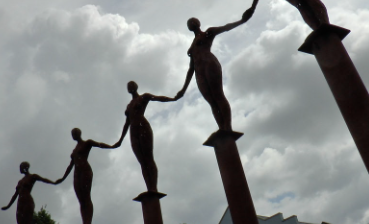
Denial of meaningless metamorphosis: being a nihilist, researcher, and indigenous person in sovereign violence, Suanmuanlian Tonsing, University of Michigan-Ann Arbor
Inner murmurations of a PhD candidate, Freek Sanders, Nyenrode
Blodeuwedd: a RE-Perspective Bangor University & Royal Northern College of Music, Manchester
Bethan Habron-James
Air of Hysteria, Lors, Independent researcher
Murmurs from beneath the Equator: Autoethnography of a Third-Culture Woman, Liverpool John Moores University, Anne-Marie Smith
Can a boy be raped? The evolution of autobiography to autofiction, Kari Silvola, University of Jyväskylä
Conversations Between Illicit Lovers: An Erotic Co-Creation of Two Selves, Esther Miriam van der Walt & Peter John Massyn, Esther: University of Modena and Reggio Emilia; Peter John: Independent Scholar
Disparate Islands – Dissociation and the Practitioner’s Use of Self, Shrav Shankar, University of Edinburgh
shravanti.05.shankar@gmail.com
Storytelling murmurations: Beyond numeric measurements to better patient care, Anika Sahni & Ana Baptista, King’s College London & Imperial College London,
On the Edges of a Murmuration in a Childhood Imaginary, James G. Deegan, Mary Immaculate College, Limerick, Ireland.
Murmu(r)ation. Beth Moran, Lecturer in Social Work, University of Plymouth
Narratives from Career Issues: An autoethnography on clients’ stories of life and careers. Dione Mifsud
University of Malta
Humour and the operating theatre: A medical student’s experience of finding their place, a collaborative autoethnography
Becoming Bird: An extended understanding of ‘self’ through Dalcroze Eurhythmics
Rosalind Ridout, Royal Northern College of Music
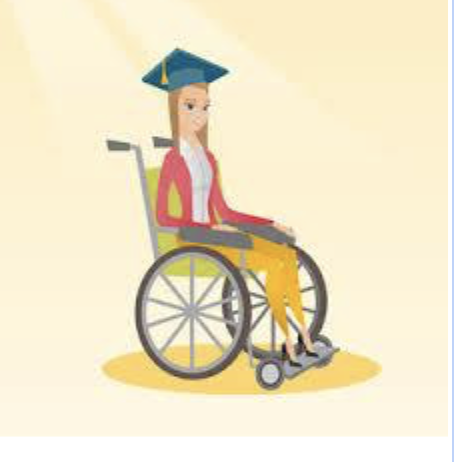
“Will I ever finish this bloomin PhD – Will The Madonna Method get me through?”
If I complete my PhD in 2024, will mark exactly 20 years of being a university student from start to finish at the same university in the UK (University of Leicester). I am doing a practice-based PhD, which is www.linktr.ee/disabledphdstudent. The thesis consists of approx. 50,000 words collation of posts from my Facebook page called ‘Diary of a Disabled PhD Student’ as the practice piece accompanied by a 40,000-word Critical Reflection. The Diary reflects on all aspects of the website set up for the project. Posts include links to interviews and biographies of people with disabilities for the Disabled Peoples and Actors Project, articles, anecdotes, daily life, and sharing other people’s work from a disabled /intersectional lens, which all are on the website. Find out today if I have submitted my PhD and learn more about how The Madonna Method that I developed is relevant to my PhD.
See my Work in Progress research project in live time at:
www.linktr.ee/disabledphdstudent
please do not publish my name online
“Neurodiversity, Community and Murmuration”, Harriet Marks, University of Plymouth
“Be-longing: A search within cultures”, Tuyết Mai Trần, University of Edinburgh
“Nomadic entanglements and the Professional Doctorate” Carol Azumah Dennis Open University
“Classroom” Chris Saunders Independent
“Black Movements and Murmuration”, Christa Welsh Independent scholar
“Recovery-Oriented Dog Intervention (RODI). How a dog made us change our perception of recovery and flattened our ontologies”. Knut Tore Sælør & Rose-Marie Bank University of South-Eastern Norway
“Queer Murmurations of Love”, Dipbk Panchal and Lors Warwick University; and (Lord) Independent
“Murmurations by the police; dysfunctional belonging and its calls” , Dipbk Panchal University of Warwick
“The Degrowth Utopian Potential of Excel Spreadsheets – An autoethongraphic approach to value theory” Simon Mair University of York, UK
“On Call” Edwina Morris, University of West London
“Air of Hysteria”, Lors Independent researcher
“On the Edges of a Murmuration in a Childhood Imaginary” James G. Deegan Mary Immaculate College, Limerick, Ireland.
“Dance set” Mel Perry and Tim Buescher Nottingham Trent University; Mel – N/A
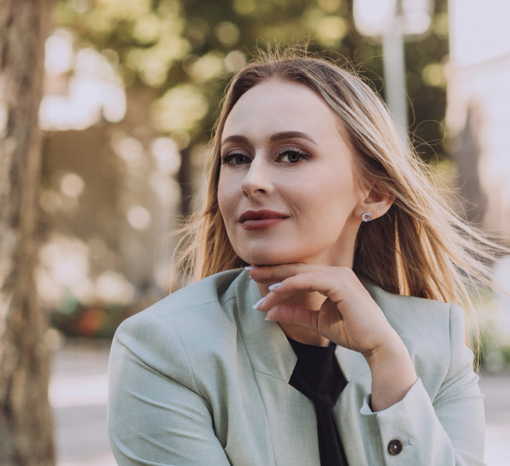
Viktorija Soboliovaite-Janoniene
A decade ago, I relocated from Lithuania to London for academic and professional pursuits. I aspired to emulate the distinguished careers of my grandfather – Military Armoured Combat Machine operator, and father – Police Inspector. My vocational ambition cantered on becoming a policewoman, aligning with family legacy.
Encountering a procedural impediment for Police Constable, I redirected my focus towards becoming Prison Officer. At 21, I commenced an intensive training program at Prison College, encompassing the acquisition of skills in de-escalation, active listening, physical strength, and control & restraint techniques. This commitment culminated in the attainment of a Level 3 Diploma in The Management and Care of Individuals in The Custodial Environment in 2018.Simultaneously, I pursued an undergraduate degree in Criminology, Policing, and Forensics at the University of West London, graduating in 2019.